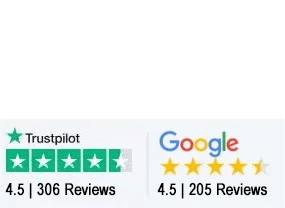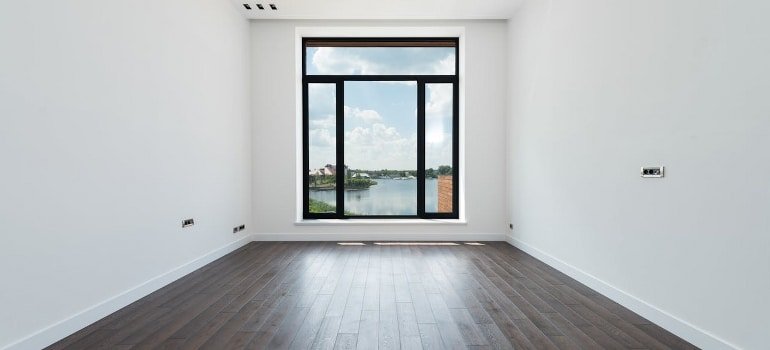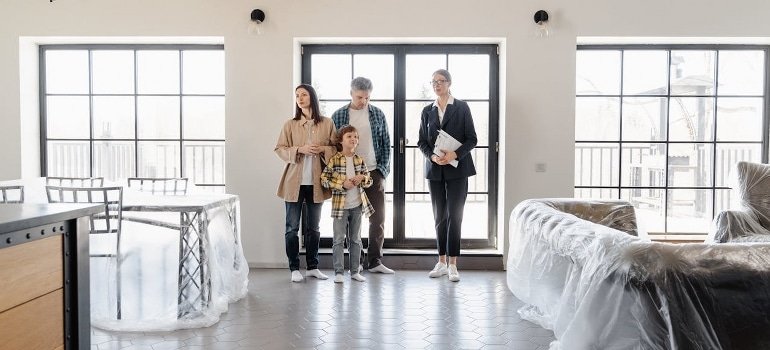How to Rent an Apartment in Germany

Get a Free Moving Quote Now!
Start Your International Moving Journey





Finding a new place abroad can feel overwhelming, but the good news? Americans renting in Germany often discover cleaner, better-maintained apartments than they expected, but some cultural habits may surprise newcomers. Understanding social habits that stun U.S. expats in Germany can help you navigate interactions with neighbors and landlords more smoothly.
International movers often say Germany rewards people who plan ahead, act fast, and follow rules. The key to getting a good flat lies in learning the rental system. If you want to rent an apartment in Germany without wasting time, missing out, or overpaying, this guide covers what to know before you even step foot in a unit. From legal square footage to avoiding scams, we’ll show you how to get it done right the first time.
What Are the Legal Space Requirements for Renters?
In Germany, the size of your apartment can’t just be whatever you want—it depends on how many people live with you. Landlords and municipalities often refer to minimum standards: adults generally need 9 to 12 square meters of living space, and kids need slightly less. These numbers aren’t strict laws, but they can affect your chances of being approved for subsidized housing or benefits like Wohngeld. You can’t expect to cram five people into a studio and have the government approve it.

International moving companies often recommend that clients confirm that the unit they’re renting matches official size expectations if they plan to apply for any state support. The landlord may ask how many people are moving in, and in some cases, large families are encouraged to find apartments with more than one toilet or a separate guest WC.
How Much Space Do You Legally Need in a German Apartment?
In Germany, you can’t squeeze a large family into a tiny flat without raising legal or subsidy issues. These rough guidelines help both landlords and renters set realistic expectations.
- Adults usually need 9–12 m²(97–129 sq ft) each
- Children require slightly less living space
- Shared WC or extra bathrooms may be expected for larger families
- Space requirements impact Wohngeld and housing approval
- Landlords may reject applications if the unit seems too small for your family size
How Competitive Is Apartment Hunting in German Cities?
Think you’ll just browse a few listings and pick your favourite? Not a chance in Berlin, Hamburg, or Munich. These cities often see 30 to 50 applicants for a single rental within 24 hours. Moving to Germany means learning how fast locals act—and you’ll need to keep up. Landlords may schedule mass group viewings, and your shot at the place may depend on a quick first impression and having all your documents ready.
Many people even bring printed copies of their application materials to the viewing. You won’t be the only person with a decent income and good manners. That’s why a strong application and good timing can push you to the front of the line.
Why Is the Rental Market So Competitive in Germany?
Big cities have more renters than available apartments. Without speed and prep, you’ll miss out quickly.
- Berlin and Munich listings can get 30+ applicants in 24 hours
- Group viewings are common and often crowded
- Fast decisions favor those with ready documents
- Scheduling appointments can be difficult due to demand
- Applications must stand out immediately
What Documents Should You Prepare Before Applying?
Want to boost your odds of getting a callback? Then don’t wait to gather your paperwork. You’ll need a Schufa report, which is Germany’s credit record, though first-timers might not have one. Add recent payslips, a job contract or offer letter, and your passport. Many landlords also want a Mietschuldenfreiheitsbescheinigung—a written confirmation that you don’t owe rent from a past apartment. Americans often forget that all these documents should ideally be in German.

Moving to Europe from USA can make this step tricky, so consider having a local translate them or write a brief note to explain your background. Bonus points if you include a short, polite cover letter. Think of it like a rental resume. The more complete your file, the more confident the landlord feels.
What Paperwork Do Landlords Expect from Expats?
Landlords want proof you’re stable, employed, and responsible. Without a full set of documents, you’re likely to be passed over.
- Schufa (credit report) is key, though new arrivals may lack it
- Proof of income: 3 payslips or a signed job offer
- Valid ID or passport
- Mietschuldenfreiheitsbescheinigung (debt-free certificate)
- A cover letter and translated documents help if you’re new to Germany
What Does “Cold” and “Warm” Rent Actually Mean?
When a listing says €850 warm, don’t get too excited until you understand what that includes. In Germany, Kaltmiete refers to the base rent without utilities. Warmmiete typically includes water, heating, and garbage services—but not electricity, TV fees, or internet. Budget at least €100–€300 per month for additional costs. You’ll also get something called a Nebenkostenabrechnung at the end of the year, showing how much was actually used and whether you owe more.
When renting in Germany, it’s important to ask the landlord upfront what is included in the rent and what costs are estimated. Heating expenses can rise sharply during the winter, and electricity is among the highest in Europe. If the rent seems unusually low, it’s likely that utilities are not included.
What’s Included in Cold vs. Warm Rent?
Prices on listings can be misleading if you don’t know what’s included—and what’s not.
- Kaltmiete = rent only, no utilities
- Warmmiete = includes heat, water, garbage
- Does not include electricity, internet, or TV tax
- Nebenkosten often adds €100–€300/month
- End-of-year bill may show overuse or underuse of utilities
Why Are Unfurnished Apartments So Bare?
If you’re picturing an American-style unfurnished unit with built-in closets, a fridge, and cabinets, brace yourself. In Germany, “unfurnished” often means completely empty—no kitchen, no lighting fixtures, sometimes even no curtain rods. You’re responsible for installing and removing everything unless stated otherwise. This can cost thousands of euros upfront.

International moving cost gets higher when you realize you might want to ship appliances or furniture. Some expats buy a full kitchen setup second-hand and sell it to the next tenant. It’s common, and many landlords expect tenants to leave things in place. But don’t assume. Always confirm in writing what’s staying and what’s not before you sign.
What Does “Unfurnished” Really Mean in Germany?
Think “bring your own everything.” German unfurnished apartments are emptier than Americans expect.
- No kitchen cabinets or appliances in many cases
- No overhead lights or curtain rods
- Built-in closets almost never exist
- Tenants install and remove furnishings themselves
- Some expats sell kitchen setups to incoming tenants
Why Are Most Apartments Rented Through Companies?
If you’re expecting to deal with a friendly landlord who lives downstairs, think again. In Germany, many rentals—especially in big cities—are handled by property companies known as Wohnungsgesellschaften. These firms often manage dozens or hundreds of units. Container shipping companies that work with relocating families know how impersonal this can feel. The upside? It’s regulated, paperwork is standardized, and you usually get a response.
The downside? Slow communication, especially if you ask questions that aren’t in their template. Be prepared to email back and forth, follow formal instructions, and sign detailed contracts that are hard to modify. This is one reason it helps to work with a relocation service if you’re short on time or don’t speak German.
What’s Different About Dealing with Rental Companies?
Unlike U.S. rentals, where private landlords are common, many German rentals go through professional firms.
- Most landlords are housing companies (Wohnungsgesellschaften)
- Communication is formal and standardized
- Contracts are rigid, slow to modify
- Firms manage large buildings, not just single units
- Systems are fair but less flexible than private landlords
What Is the Anmeldung and Why Does It Matter?
After you rent an apartment in Germany and sign your lease, you’re required to register your new address with the local authorities within 14 days—this is called the Anmeldung. Without it, you can’t open a bank account, get insurance, or even sign up for the internet in many cases. Your landlord must provide a document called the Wohnungsgeberbestätigung confirming that you moved in.

Many new expats often overlook or delay this important step. Be sure to schedule an appointment at your local Bürgeramt as soon as you know your move-in date. Some cities have long waiting times, and late registration can result in fines. While it’s not the most exciting task, it’s one of the most crucial steps in settling in.
How Do You Register Your Address After a Move?
You must register your address fast—or face problems with banks, mail, and insurance.
- Anmeldung must be done within 14 days of moving in
- Wohnungsgeberbestätigung is required from landlord
- Appointment slots at Bürgeramt can be limited
- No registration means no German ID or banking access
- Fines possible for late Anmeldung
What Upfront Costs Should You Expect?
Renting in Germany can come with a high upfront price tag. The security deposit alone can be up to three months’ Kaltmiete. That doesn’t include your first month’s rent, moving costs, or any items you need to buy right away. Also keep an eye out for the Maklerprovision—a broker’s fee. The good news? You only pay this if you actively hired the broker yourself.
Most listings today are marked provisionsfrei, which means no extra fee. Still, always double-check. Moving cost can already strain your budget, so knowing these figures helps you avoid financial surprises. If you’re renting a fully empty unit, factor in €1,000–€2,000 for basic essentials alone.
What Are the Initial Costs of Renting in Germany?
The monthly rent might look doable, but the upfront costs add up fast.
- Up to 3 months’ cold rent as a deposit
- First month’s rent paid at lease signing
- Possible broker fee (Maklerprovision) if you hired an agent
- €1,000–€2,000 needed for furniture and appliances if unfurnished
- The electricity setup and TV tax are extra surprises
How Can You Spot a Rental Scam?
Scams aren’t rampant in Germany, but they exist, especially in English-language listings or casual platforms like Facebook. What is one red flag when you want to rent an apartment in Germany? A landlord asking for a deposit before you’ve seen the place. Another? A price that feels way too good for the location. International movers often warn clients to avoid offers that sound rushed, pushy, or strangely generous.

Always ask for the full address, request a copy of the official lease, and make sure the person showing the apartment actually works for the company or owns the property. Some scammers even steal photos from real listings and re-post them with fake contact info. So, when you want to rent an apartment in Germany, stay cautious, and never wire money overseas before verifying the details.
What Red Flags Should You Watch for in Rental Listings?
Scammers target newcomers who don’t understand how renting works in Germany.
- Never send money before viewing a place
- Listings with low rent in prime locations are suspicious
- Fake landlords often use stolen photos
- Facebook and Craigslist scams are common
- Ask for a lease and ID verification before paying
What Actually Helps You Stand Out to Landlords?
It’s not always the person with the highest salary who wins the apartment. Sometimes it’s the one who looks most reliable and ready. Landlords appreciate people who are organized, punctual, and polite. If you want to rent an apartment in Germany, show up to viewings looking put-together. Speak a few words of German, even if it’s just a greeting. Bring your full application package in a neat folder, and follow up quickly via email with a PDF copy.
If you’re moving with a pet, bring proof of pet insurance or written permission from the landlord. These small steps make a big difference in a market where everyone is trying to prove they’re the ideal tenant.
How Can You Improve Your Chances of Getting the Apartment?
Presentation matters. You need more than just a good salary to get picked.
- Dress professionally at viewings
- Speak or write a little German
- Bring a printed folder with all documents
- Follow up with a PDF via email same day
- Pet documentation and insurance can sway decisions
Ready to Rent an Apartment in Germany the Right Way?
Renting in Germany comes with rules, formalities, and a learning curve—but once you understand how the system works, it’s manageable. You’ll need to move fast, be organized, and stay alert to avoid scams or delays. Most importantly, don’t rely on luck. Do your research, get your paperwork in order, and treat each viewing like a job interview. If you follow these steps, you’ll be ready to rent an apartment in Germany without unnecessary stress or setbacks. From legal space requirements to setting up your utilities, every detail counts—and your attention to them will help you settle into your new life with confidence
